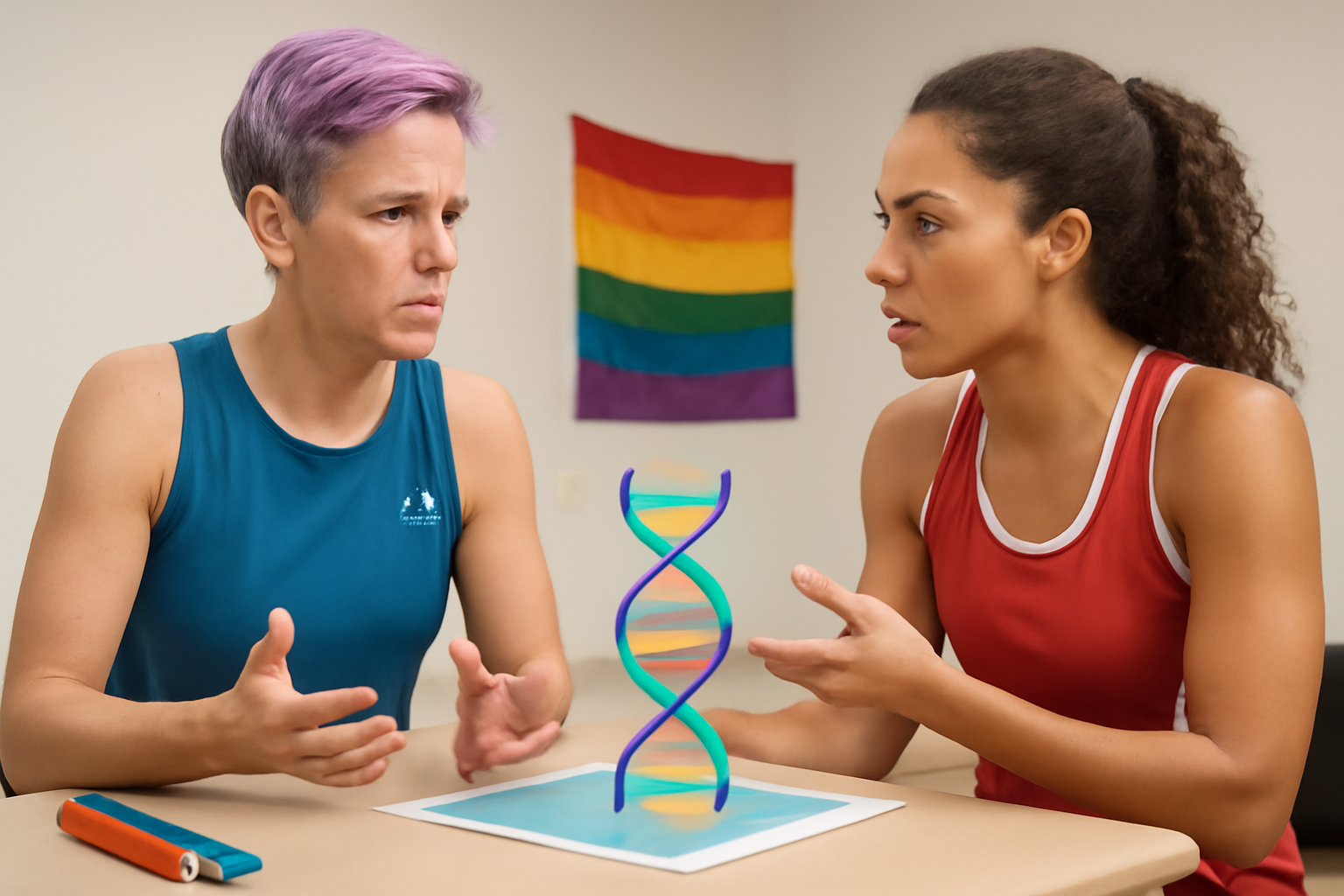
In recent years, the intersection of gender and sports has become a vibrant and often contentious topic of discussion. As the world of athletics continues to evolve, questions about fairness, inclusion, and the definition of gender in sports have sparked debates across the globe. A particularly pressing issue has been the role of genetic testing in determining eligibility for female athletes.
The Role of Genetics in Female Athletics
Genetic testing in sports is not a new phenomenon, but it has gained increased attention, especially in female athletics. The concept of testing female athletes to verify their gender has been a controversial topic, raising questions about privacy, discrimination, and the very nature of gender itself. As we explore this issue, it is crucial to consider both the scientific and ethical implications.
Historically, sports organizations have implemented sex verification processes to ensure fair competition among athletes. This was initially done through physical examinations, which then evolved into chromosomal testing, and more recently, into genetic testing. The primary aim has been to maintain a level playing field by identifying athletes who may have a competitive advantage due to naturally occurring genetic variations.
Challenges and Controversies
One of the main challenges with genetic testing is the complexity of human biology. Gender is not simply a binary concept, and genetic variations can occur naturally in humans, leading to a spectrum of gender expressions. The question then arises: How do we define gender in sports, and who gets to decide?
Many athletes and advocacy groups argue that requiring women to undergo genetic testing is invasive and discriminatory. They contend that such policies can unfairly target women who do not conform to traditional gender norms, including intersex athletes and transgender women. These groups advocate for more inclusive policies that respect the diversity of athletes' identities while still addressing concerns about fairness.
On the other hand, proponents of genetic testing argue that it is necessary to ensure that competition remains fair. They claim that without it, athletes with naturally high levels of testosterone or other advantageous genetic traits may dominate women's sports, leading to an uneven playing field. The debate thus revolves around finding a balance between fairness and inclusion.
Moving Towards Inclusivity
As the debate continues, various sports organizations are grappling with how best to address these issues. Some have opted to implement policies that allow for a wider range of gender identities and expressions, focusing on inclusivity and the mental well-being of athletes. Others continue to uphold stringent testing protocols in the name of competitive fairness.
Innovative approaches are being explored to bridge the gap between fairness and inclusion. These include creating new competition categories, implementing hormone level guidelines, and fostering dialogue between sports governing bodies, athletes, and advocacy groups. The goal is to create a sports environment that is welcoming and equitable for all athletes, regardless of their gender identity.
Ultimately, the conversation around gender and athletic eligibility is one that requires sensitivity, understanding, and a willingness to adapt to the complexities of human identity. By engaging in open discussions and considering diverse perspectives, the sports community can work towards solutions that honor both the spirit of competition and the dignity of all athletes.
Conclusion
The future of gender in sports is uncertain, but it offers an opportunity to redefine how we view athletic competition. As society evolves, so too must the ways in which we approach these sensitive issues. By prioritizing inclusivity and fairness, sports can continue to be a platform for excellence, diversity, and empowerment.
In navigating these challenges, it is vital to remember that the heart of sports lies in unity, perseverance, and respect. By championing these values, we can ensure that every athlete has the chance to participate and succeed, regardless of their genetic makeup or gender identity.
Related Posts
Drag Night Extravaganza: Daddies & Baddies at Atlantic City's Anchor Rock Club
Atlantic City, NJ, isn't just about its casinos and boardwalk—it's a hub bursting with energy and entertainment. One event that truly captures this spirit? The "Daddies & Baddies" drag night at Anchor Rock Club. This vibrant night celebrates amateur drag in all its glory, offering a kaleidoscope display where creativity and community unite. If you're looking where inclusivity and creativity take [...]
Pedro Pascal Criticizes JK Rowling's Celebration of Supreme Court Ruling
Pedro Pascal responds passionately against JK Rowling's stance Pedro Pascal, known from his role in *The Last Of Us*, has openly criticized JK Rowling following her support over a controversial Supreme Court decision in Scotland. The ruling, which has ignited a wave debate, stated that under 2010's Equality Act, "women" refers strictly "biological women." This decision came after a lawsuit from F [...]
Fans Celebrate Chappell Roan's Release of New Sapphic Ballad “The Subway”
Chappell Roan's journey with "the subway" Hop on board with Chappell Roan. Chappell Roan has just dropped her highly anticipated song, "The Subway," and fans couldn't be happier. This sapphic ballade possesses everything we love about her music — it captures New York City's heartache and healing, all seen through her unique lens. The excitement around "The Subway" first kicked off earlier this [...]